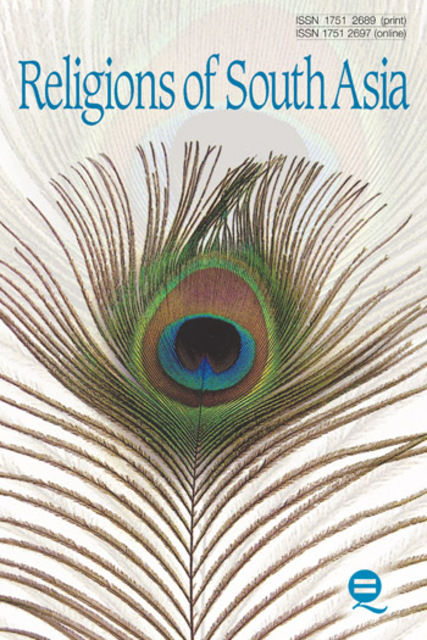Tradition, Identity and Scriptural Authority: Religious Inclusivism in the Writings of an Early Modern Sanskrit Intellectual

Full description
It is commonly held that one of the distinguishing features of modern Hinduism is its all-inclusive tolerance and comprehensive openness for religious plurality. However, this universalism contrasts in important ways with the traditional inclusivism found in the writings of classical and medieval Indian brahminical thinkers. This article focuses on the inherent complexity and modalities of religious inclusivism in the early modern period. How was inclusivism construed and defended by Sanskrit intellectuals of this period? How do inclusivist models relate to broader concepts of identity, tradition and scriptures? An attempt is here made to answer these questions through examining the work of the sixteenth century scholar Appaya Diksita. Special attention will be paid to arguments he presents in his Sivarkamanidipika concerning the legitimacy of the Pancaratra tradition and the authority of Saivagamas.
- typeImage
- created on
- file formatjpeg
- file size132 KB
- container titleReligions of South Asia
- creatorJonathan Duquette
- issn1751-2697 (Online)
- rights holderEquinox Publishing Ltd.
- volume9.3
- doi
We use cookies to analyze our traffic. Please decide if you are willing to accept cookies from our website. You can change this setting anytime in Privacy Settings.
